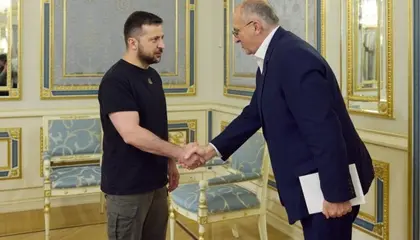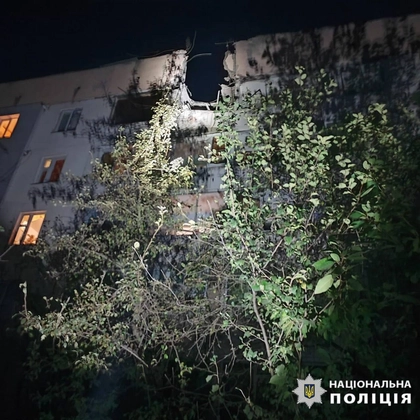During a long-anticipated meeting with Zbigniew Rau, Poland’s Minister of Foreign Affairs and the current boss of the Organization for Security and Cooperation in Europe (OSCE), President Zelensky thanked Poland for the profound support that Warsaw has extended to Ukraine, including weaponry and hosting more Ukrainian refugees than any other country.
Rau, who visited Bucha, the site of a number of well-known crimes against humanity during Russia’s occupation of the area, said there was a need to bring the Russian invaders to justice for crimes committed against Ukrainians.
JOIN US ON TELEGRAM
Follow our coverage of the war on the @Kyivpost_official.
The increased risk of sexual violence, and violence against women and children, were points that the Secretary General honed-in on while discussing the increased risk that all civilians face during armed conflict.
Echoing these words, later in the day, Ukrainian Foreign Minister Dmitry Kuleba held a press conference with Rau and the OSCE’s Secretary General, Hela Maria Schmid, whereby Kuleba was quoted as saying that he “welcomed the efforts of the OSCE to document war crimes of Russia, in particular through the use of the Moscow Mechanism.
The Moscow Mechanism was used against Russia to document war crimes committed by Russia on the territory of Ukraine. We will use all the possibilities of the OSCE to bring Russia to justice.”
Like many international organizations, the OSCE operates by consensus, meaning that all members must agree to an action before it is taken. Criticism of this rule, as Russia is also an OSCE member, has been constant, with some arguing that perhaps a new framework for modern European security was necessary.

South Korea Demands 'Immediate Withdrawal' of North Korean Troops in Russia
Addressing this concern, Rau announced that the OSCE was already looking for ways that it could alter its 47-year old structure so that it could avoid Russia’s certain refusal to allow any initiatives that would help Ukraine.
The Foreign Minister of Poland went on to say that the Organization was already identifying ways for new projects to be launched and financed, using financing that does not fall within Russia’s veto power.
During the press conference, both Schmid and Rau commented that they foresaw years of future strong support for Ukraine by the OSCE, and that new programs, building upon the already existent OSCE-sponsored programs for Ukraine, could be expected.
You can also highlight the text and press Ctrl + Enter






